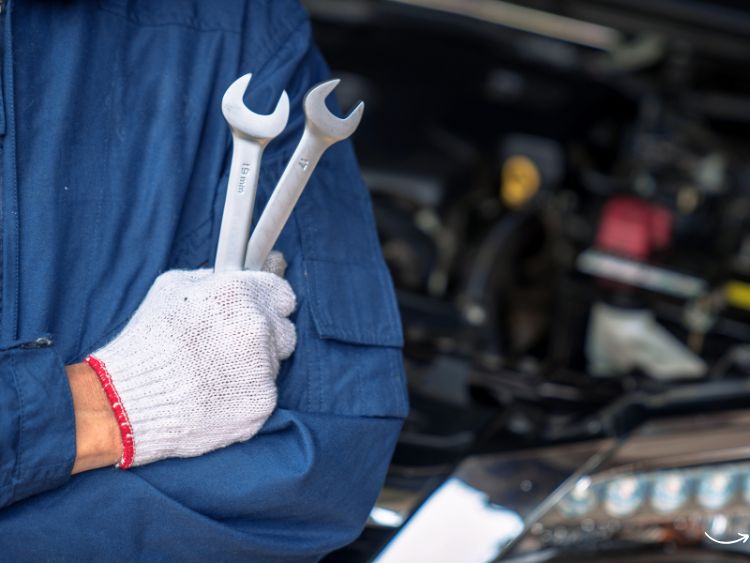Why Is an Automotive Oil Change Important?
Your car’s engine oil is like its lifeblood, keeping all the moving parts lubricated, reducing friction, and preventing overheating. Without regular oil changes, your engine could seize up, leading to costly repairs—or worse, a total breakdown. Think of an automotive oil change as preventive maintenance that protects your wallet and your ride’s lifespan.
Key Benefits of Regular Oil Changes:
- Improved Engine Performance: Clean oil keeps the engine running smoothly and efficiently.
- Extended Engine Life: Reduced friction means less wear and tear on critical parts.
- Better Gas Mileage: Clean oil reduces energy waste, helping you save on fuel.
- Fewer Emissions: Old oil burns less cleanly, affecting your car’s environmental impact.
How Often Should You Change Your Oil?
It’s the million-dollar question: how often do you need an automotive oil change? The answer depends on a few factors, like your car’s make, model, and how you drive.
General Guidelines:
- Traditional Oil: Every 3,000-5,000 miles.
- Synthetic Oil: Every 7,500-10,000 miles.
- Owner’s Manual: Always refer to your vehicle’s specific recommendations.
If you drive in extreme conditions—think frequent stop-and-go traffic, towing heavy loads, or extreme temperatures—you might need to change your oil more often.
Signs It’s Time for an Oil Change
Neglecting an oil change can lead to bigger problems. But how can you tell it’s time? Watch for these telltale signs:
- Dashboard Warning Light: If the oil pressure or check engine light comes on, it’s a big hint.
- Dark, Dirty Oil: Fresh oil is amber and clear. Old oil? Not so much.
- Engine Noise: Without proper lubrication, your engine might start clunking or knocking.
- Excessive Exhaust Smoke: Thick smoke might mean your oil is overdue for a swap.
- Burning Oil Smell: A burnt odor often signals oil-related issues.
DIY Automotive Oil Change: Step-by-Step Guide
Rolling up your sleeves for an oil change? It’s easier than you think, even if you’re not a gearhead. Here’s how to tackle it:
What You’ll Need:
- Wrench
- Oil filter wrench
- Drain pan
- Funnel
- New oil filter
- Fresh motor oil (consult your owner’s manual for the right type)
The Steps:
- Prepare Your Car: Park on a level surface and let the engine cool.
- Drain the Old Oil:
- Place a drain pan under the oil pan.
- Remove the drain plug and let the old oil flow out.
- Replace the Oil Filter:
- Use the filter wrench to remove the old filter.
- Apply a bit of new oil to the rubber gasket of the new filter, then screw it in place.
- Add New Oil:
- Replace the drain plug.
- Pour in the recommended amount of new oil using a funnel.
- Check the Oil Level:
- Start the engine, let it run for a minute, and then shut it off.
- Use the dipstick to ensure the oil level is correct.
Pro Tip:
Dispose of the old oil properly by taking it to a recycling center. Don’t just dump it—it’s harmful to the environment!
Professional Oil Change: What to Expect
Not up for doing it yourself? No problem! Professional automotive oil change services are quick and reliable. Most places offer additional perks like tire rotations, fluid top-offs, and inspections.
What You’ll Get:
- Speedy Service: Professionals can usually change your oil in under 30 minutes.
- Expert Advice: They’ll recommend the best oil type for your car.
- Additional Checks: Many services include inspections for leaks, tire pressure, and more.
What Kind of Oil Should You Use?
Choosing the right oil isn’t rocket science, but it does require a bit of knowledge. Here are your options:
- Conventional Oil: Budget-friendly and suitable for older cars.
- Synthetic Oil: Best for modern engines and extreme driving conditions.
- High-Mileage Oil: Designed for cars with over 75,000 miles.
- Blends: A mix of synthetic and conventional, offering balanced performance.
Always check your car’s manual to determine the best fit.
How Much Does an Oil Change Cost?
The cost of an automotive oil change can vary widely based on factors like your car type, the oil used, and whether you go DIY or professional.
A Rough Breakdown:
- DIY Oil Change: $20-$50 (materials only)
- Professional Service:
- Conventional oil: $30-$75
- Synthetic oil: $50-$100+
Keep an eye out for coupons or discounts at local service centers to save a few bucks!
FAQs About Automotive Oil Changes
Q: Can I switch from conventional to synthetic oil?
A: Yes! Most modern engines can handle the switch. Just consult your owner’s manual first.
Q: What happens if I skip an oil change?
A: Skipping oil changes can lead to sludge buildup, reduced engine efficiency, and eventual failure. Don’t risk it!
Q: How do I know which oil filter to buy?
A: Your car’s manual or a quick chat with an auto parts expert will guide you to the right filter.
Q: Should I warm up the car before changing the oil?
A: Yes, but only slightly. Warm oil drains more easily, but hot oil can burn you.
Q: How long does an oil change take?
A: DIY oil changes take about an hour. A professional service? Around 20-30 minutes.
Wrapping It Up
An automotive oil change might seem like a small task, but it’s crucial for keeping your car in top shape. Whether you do it yourself or leave it to the pros, staying on top of your oil changes ensures your engine stays healthy, your wallet stays happy, and your ride stays smooth. So, next time that sticker on your windshield reminds you it’s time, don’t put it off!
Authoritative Links
- https://www.cars.com/articles/how-often-should-you-change-your-oil-1420684917655/
- https://www.popularmechanics.com/cars/how-to/a1660/4254869/
- https://www.autoblog.com/article/how-to-change-your-oil/

